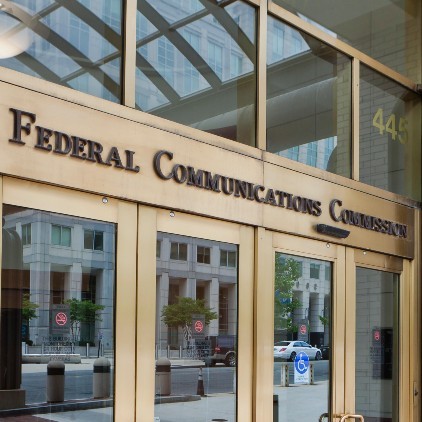
WASHINGTON – The FCC is reorganizing its international bureau this week in an effort to help speed up the approval process for new satellite launches and better address the spectrum needs of the satellite industry.
That move, announced this morning at the National Press Club by Federal Communications Commission (FCC) Chairwoman Jessica Rosenworcel, will result in a new standalone Office of International Affairs and a new Space Bureau.
Figure 1:  (Source: B Christopher/Alamy Stock Photo)
(Source: B Christopher/Alamy Stock Photo)
"The satellite industry is growing at a record pace, but here on the ground our regulatory frameworks for licensing them have not kept up. Over the past two years the agency has received applications for 64,000 new satellites. In addition, we are seeing new commercial models, new players, and new technologies coming together to pioneer a wide-range of new satellite services and space-based activities that need access to wireless airwaves," said Chairwoman Rosenworcel in her prepared remarks.
After namechecking space tourism, satellite broadband, disaster recovery efforts and more, Rosenworcel said the interest in space as a new market for investment and a home for new kinds of services is vast. She noted that "private investment in space companies has reached more than $10 billion in the last year, the highest it has ever been."
She also said that "the space sector has been on a monumental run. Satellite operators set a new record last year for the number of satellites launched into orbit, a record they will surpass again."
In Light Reading's coverage, satellite broadband access is a priority, but Rosenworcel was quick to point out the bigger picture. "We are seeing new commercial models, new players and new technologies coming together to pioneer a wide range of new satellite services and space-based activities; it's undeniably exciting. But if you want to be in this new space age, we have to start thinking about how to build on this success and prepare for what comes next," she said.
Light Reading inquired about the number of new satellite applications that were aimed at broadband applications; we haven't been able to get an estimate yet but will report back when we do.
All that said, the creation of the Space Bureau was a big deal to the executives assembled here from the Satellite Industry Association, which hosted the event.
Jennifer Warren, VP of technology, policy and regulation at Lockheed Martin, said during a panel following Rosenworcel's announcement that the stakes are much bigger than broadband satellite launches. This new regulatory framework can clear the way for the US to be a leader in "the commercialization of space," she said. "It's not for the faint-hearted."
The FCC bureau reorg "also gives encouragement to new space actors that there will be staff accessible to answer the many questions they must have as they try to enter this exciting industry," according to Julie Zoller, Head of Global Regulatory Affairs, Project Kuiper at Amazon. "It's a complex process, but it is one that is full of opportunity and benefits to consumers, as Chairwoman Rosenworcel mentioned. The number of broadband satellite systems is really supercharging the ability to bridge the digital divide curve at home and abroad."
In her remarks, Rosenworcel was clear that she can take on the challenge of reorganizing the FCC to become an enabler instead of a bottleneck. She added that "we're working to update our rules, bulk up our ranks and speed up the satellite licensing process. We're also making more spectrum available to fuel our space ambitions. And we're taking action to care for our skies so that the space economy can support our grandest ambitions."
Related stories and posts:
Chairwoman Rosenworcel Proposes Space Bureau (FCC press release)
— Phil Harvey, Editor-in-Chief, Light Reading
About the Author(s)
You May Also Like











